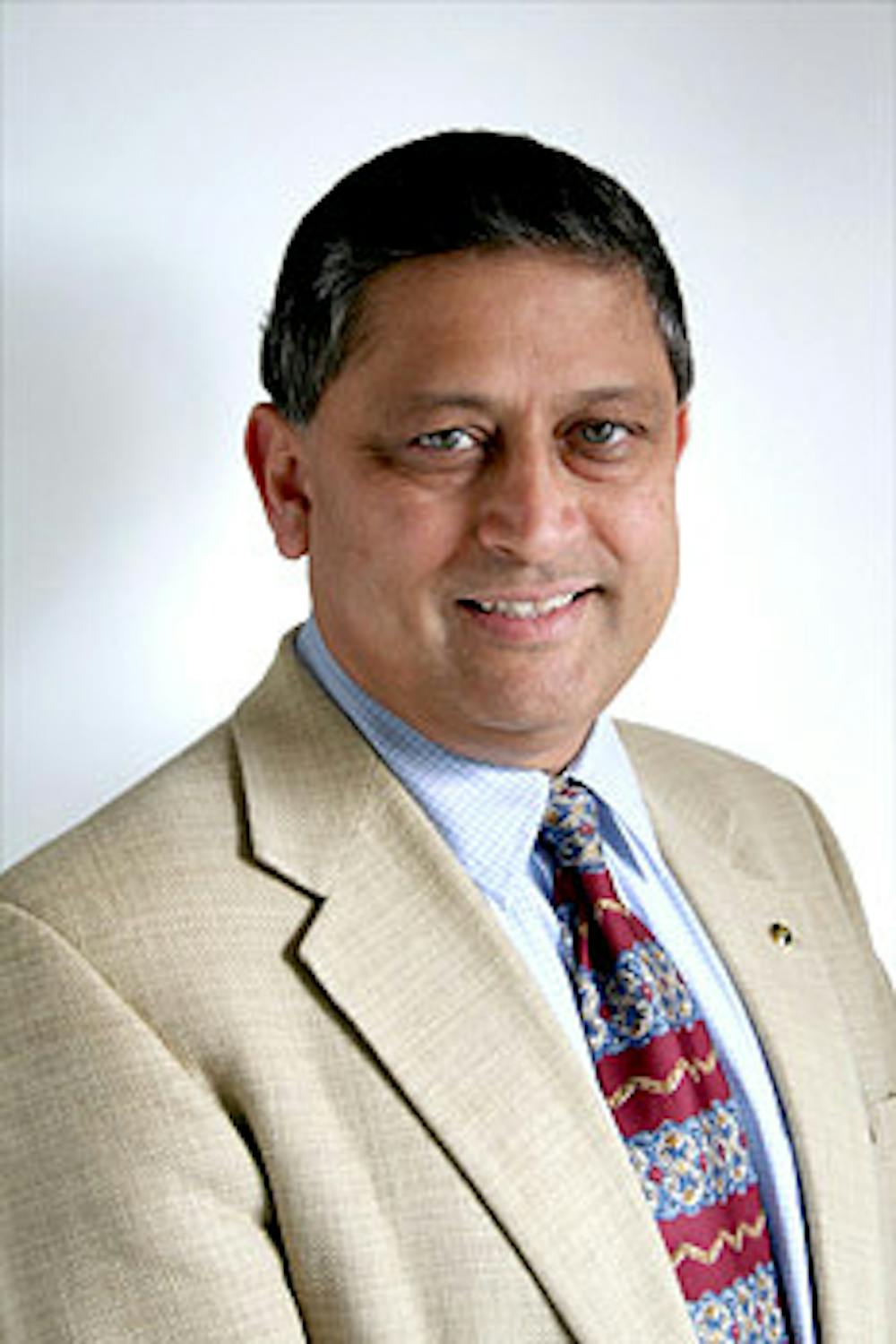Under the direction of new Chief Information Officer Ravi Pendse, the University may see increased emphasis on corporate funding in research.
The University plans to expand all research at Brown, which includes research funded by corporations, said Vice President for Research David Savitz.
Pendse, who assumed his role Sept. 1, said he will pursue corporate-funded research during his tenure, The Herald previously reported. Pendse cited the relationship he helped create between Cisco and Wichita State University, his former employer, as an example of the kinds of ties he hopes to create at the University.
But corporate funding for academic research remains a controversial practice, with some saying it creates the potential for harming the integrity of research.
“I think there are risks any time you have sponsored research,” said Dean of the School of Engineering Lawrence Larson. “We … mitigate those risks carefully,” he added.
The University recognizes that private sponsors are interested in making a profit, Savitz said. “We need to be watchful to make sure that the work we’re engaging in ... doesn’t compromise the basic values of academic research,” he said.
A 2001 study conducted by former Professor of Psychiatry and Human Behavior Martin Keller and funded by the pharmaceutical company GlaxoSmithKline was found fraudulent after it was revealed that Keller had minimized the dangerous effects of the drug being studied.
Keller endorsed antidepressant Paxil without fully exposing the risk of suicide in adolescent users, The Herald reported in 2012, at the time of the University’s internal investigation of the case.
The University takes precautions to minimize the risk of corporate interference, Savitz said.
Researchers have the final say in how they conduct their work, Savitz said. “There are a number of safeguards protecting the freedom to publish in the open literature and prohibitions against sponsor interference with the research activity,” he wrote in an email to The Herald.
The University also makes sure faculty members disclose conflicts of interest, Larson said.
But working with industries is always challenging for universities, said Allan Bower, professor of engineering and co-director of the General Motors/Brown Collaborative Research Laboratory on Computational Materials Research, a University lab that has been sponsored by General Motors for over a decade.
For a corporation offering funds, the “bottom line is always trying to make money, and we have to find common ground,” Bower said. Academics are interested in the scientific inquiry, while corporate sponsors seek projects with broader benefits, he said. A university could have a “world-leading group,” but the researchers will only be successful if an industry is interested in funding their work, he said.
“All scientific research we do in school is designed to have some applications in the real world,” Larson said, citing the creation of better cars, cell phones and medical equipment.
The engineering school has also had a partnership with Medtronic, Inc., a developer of medical device technology in Minneapolis, for about four years, Larson said.
Funding aside, faculty members and graduate students can reap rewards from corporate-sponsored research opportunities, Savitz wrote.
“When the key elements are in place for accepting corporate sponsorship, there can be side benefits in exposing faculty in the practical implications of their research and providing opportunities for interested students to consider future employment,” he wrote.
With the reduction of in-house research programs, companies look to universities in an attempt to access the “pipeline for recruiting well-trained, promising graduates,” Savitz said.
Corporate funding will continue to play a role in research as long as it doesn’t “compromise the basic values of academic research” and faculty members don’t “deviate from those research goals,” he said.
But Savitz said the University does not want to rely solely on corporations for funding.
“(With) the dismal state of federal funding … there is more interest in finding other sources, not just corporations, but foundations or agencies that Brown has worked with in the past that we’d be interested in working with,” he said.

ADVERTISEMENT




